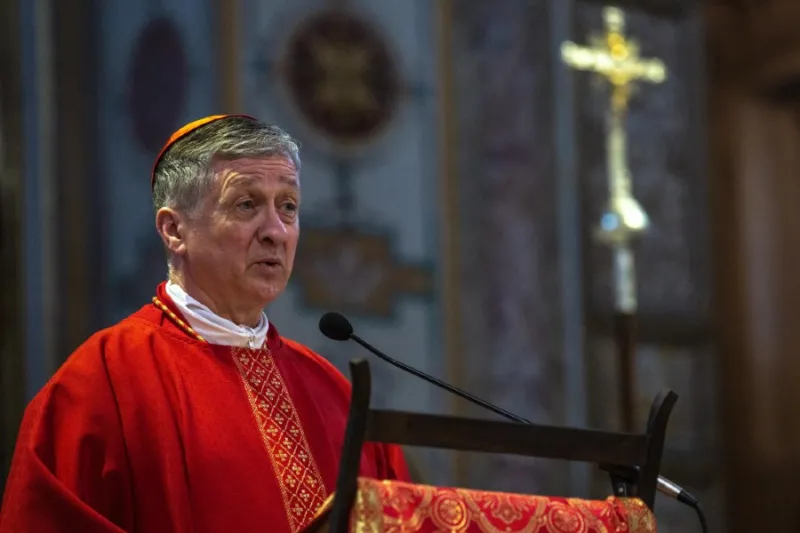
Springfield, Ill., Jan 26, 2022 / 17:32 pm (CNA).
The Diocese of Springfield in Illinois has instituted regulations on members of the Canons Regular of St. John Cantius serving there that are similar to those of the Archdiocese of Chicago, where the canons are incardinated.
The canons regular are under the canonical authority of the Archbishop of Chicago, Cardinal Blase Cupich.
“All Masses celebrated by the Canons Regular in the Diocese of Springfield will be celebrated on the first Sunday of the month according to the Novus Ordo,” said a Jan. 25 policy of the Springfield diocese.
Additionally, the policy regarding the canons’ parish in Springfield stated that a “plan of catechesis” will be issued in order to “assist and accompany those attached to the former rite and to fully appreciate the restoration of the liturgy and the teachings of the Council.”
Priests who currently celebrate the traditional Mass in Springfield but who are incardinated in the Archdiocese of Chicago “will be asked to affirm in their written petition to celebrate the sacraments in the earlier liturgical form that the restored liturgy of the Council is the unique expression of the lex orandi of the Roman Rite.”
The diocese also declared that Sacred Heart Church in Springfield will be designated a “non-parochial church for the eucharistic celebrations according to the Missal of 1962,” as is required by Traditionis custodes.
In 2014, the Canons Regular of St. John Cantius was entrusted with the pastoral care of Sacred Heart Church in Springfield. The Archdiocese of Chicago, the Society of St. John Cantius, and the Diocese of Springfield made a joint agreement that the canons regular would be able to minister in the Diocese of Springfield.
The canons regular, which was founded in 1998, follows a form of vowed religious life that celebrates both the Tridentine and the post-Second Vatican Council forms of the Mass.
Springfield’s release aligns the canons in the diocese with the policies implemented by their archbishop. That policy, which was announced in December, also went into effect on Jan. 25.
Under the updated policies, the canons who wish to use the “old rite” must submit their requests to Cardinal Cupich in writing and agree to abide by the new norms under Pope Francis’ motu proprio.
The usus antiquior is also said in the Springfield diocese at St. Isidore’s in Mt. Zion, and at St. Rose of Lima in Quincy, a parish entrusted to the Priestly Fraternity of St. Peter.
In a July 19, 2021 decree implementing Traditionis custodes, Bishop Thomas Paprocki of Springfield in Illinois had permitted the usus antiquior to be celebrated at both St. Rose of Lima and Sacred Heart “on any or all days of the year.” He also said that “Priests who already celebrate Mass according to the Missale Romanum of 1962 in the Diocese of Springfield in Illinois are authorized to continue to enjoy this faculty upon request”.
If you value the news and views Catholic World Report provides, please consider donating to support our efforts. Your contribution will help us continue to make CWR available to all readers worldwide for free, without a subscription. Thank you for your generosity!
Click here for more information on donating to CWR. Click here to sign up for our newsletter.




Leave a Reply